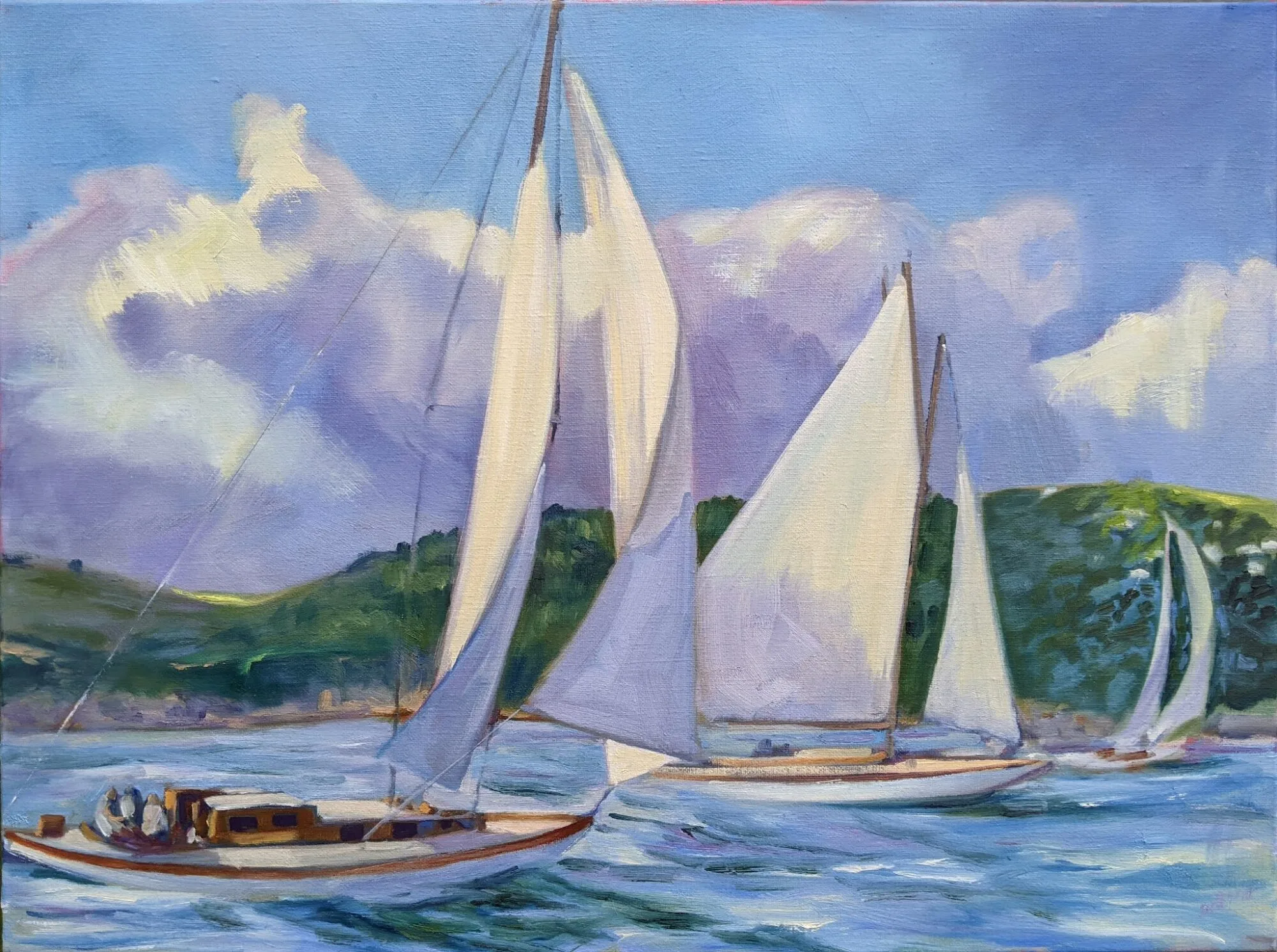How can you turn off the comparisons with others?
 |
| Untitled, oil on paper, by Carol L. Douglas |
My husband was in Rochester for work this week. Bad weather meant it took a very long time for him to get back to Maine. The easiest way to track his progress was to check his location on Google Maps. I found myself looking at my phone every few minutes. After each glance at his progress, I’d turn to Facebook and Instagram to see what my friends were doing.
By the time he got home, I was thoroughly depressed. Kathleen, Julie, and John all painted gorgeous work yesterday. Meanwhile, I spent the whole day on marketing stuff. “You didn’t do the
Strada 31-day challenge and now they’re all driving past you in their Lamborghinis,” I scolded myself.
By the time Doug finally made it home, I would have gone into the backyard to eat worms, except that it’s 0° F. and the worms are all encased in ice. Did I mention that Mark is teaching in Georgia and Charles is in California?
 |
| Untitled, by Carol L. Douglas |
Comparing oneself to others has long been known to cause depression. It’s only been since the advent of social media that we have found a way to beat ourselves up with it nonstop. Dr. Mai-Ly Steers, who has studied the link between social media and depression, called this phenomenon, “seeing everyone else’s highlight reels.”
“One danger is that Facebook often gives us information about our friends that we are not normally privy to, which gives us even more opportunities to socially compare,” Steers said. “You can’t really control the impulse to compare because you never know what your friends are going to post.
“In addition, most of our Facebook friends tend to post about the good things that occur in their lives, while leaving out the bad… this may lead us to think their lives are better than they actually are and conversely, make us feel worse about our own lives.”
 |
| Scrotum man (detail), by Carol L. Douglas |
For the artist, it means we can constantly compare our own struggles at the easel with our friends’ carefully-lighted, perfectly-photographed finished work. We can come away wondering why we ever thought we could paint in the first place.
Social media is a two-edged sword for artists. It is the conduit through which we (increasingly) pour our work out into the world, but it’s also a way to burn a lot of time and psychic energy. There’s no turning back, so we have to develop strategies to protect ourselves from the anxiety it produces.
 |
| The Joker, by Carol L. Douglas |
No thought—including envy—can have power over you without your permission, although you do need to be aware that you’re doing it. One of the best ways to get out of the envy loop is to distract yourself. Thinking about something else is a proven coping mechanism for stressful situations. And, luckily, the work we should be doing—making art—is the best possible distraction from the competitive envy we find so difficult to process.


